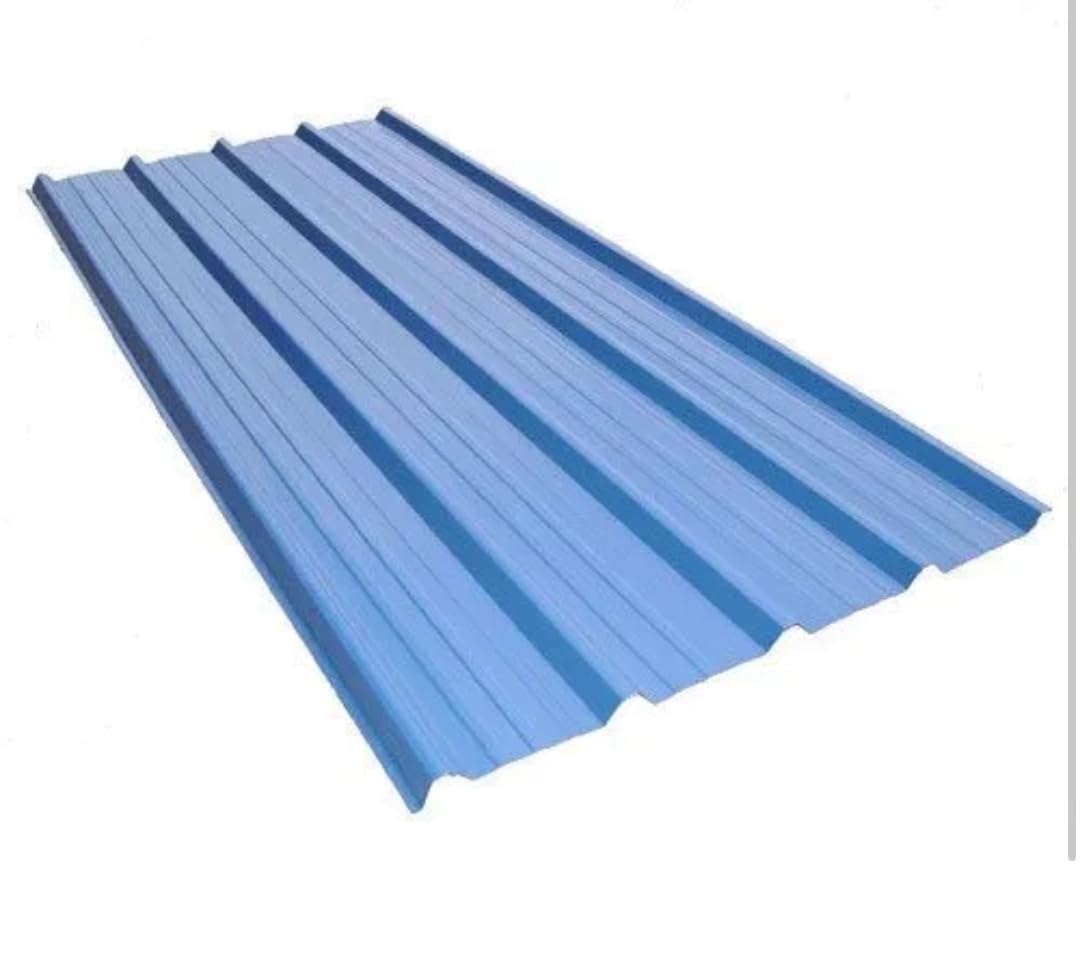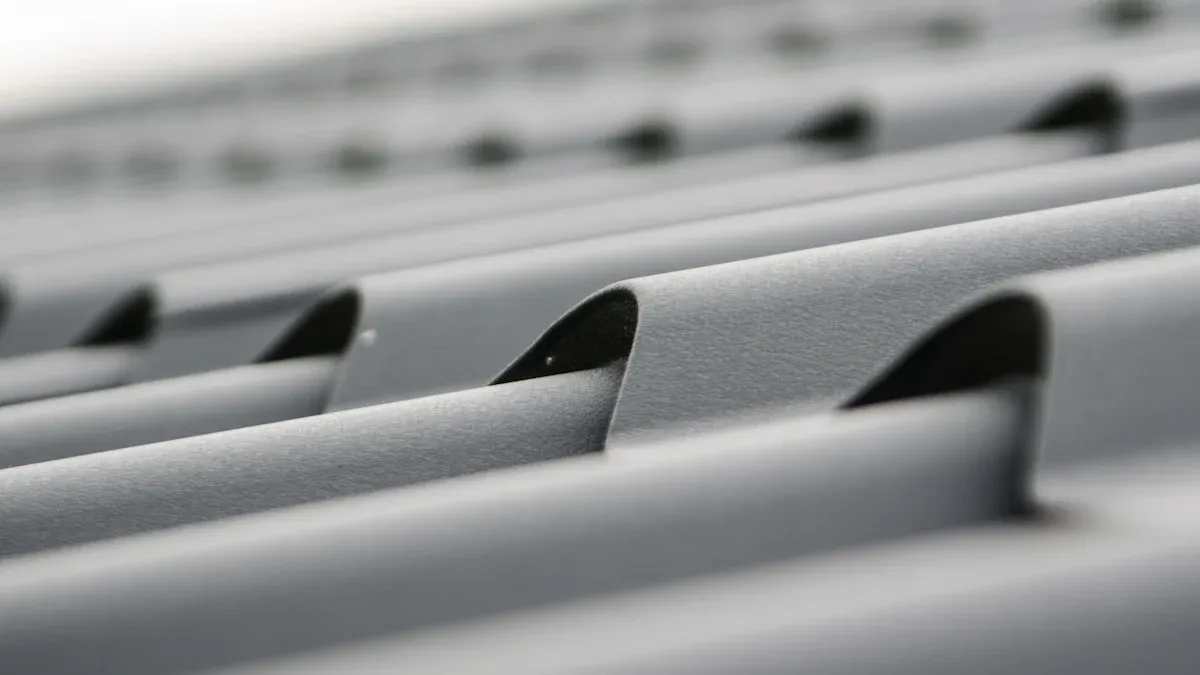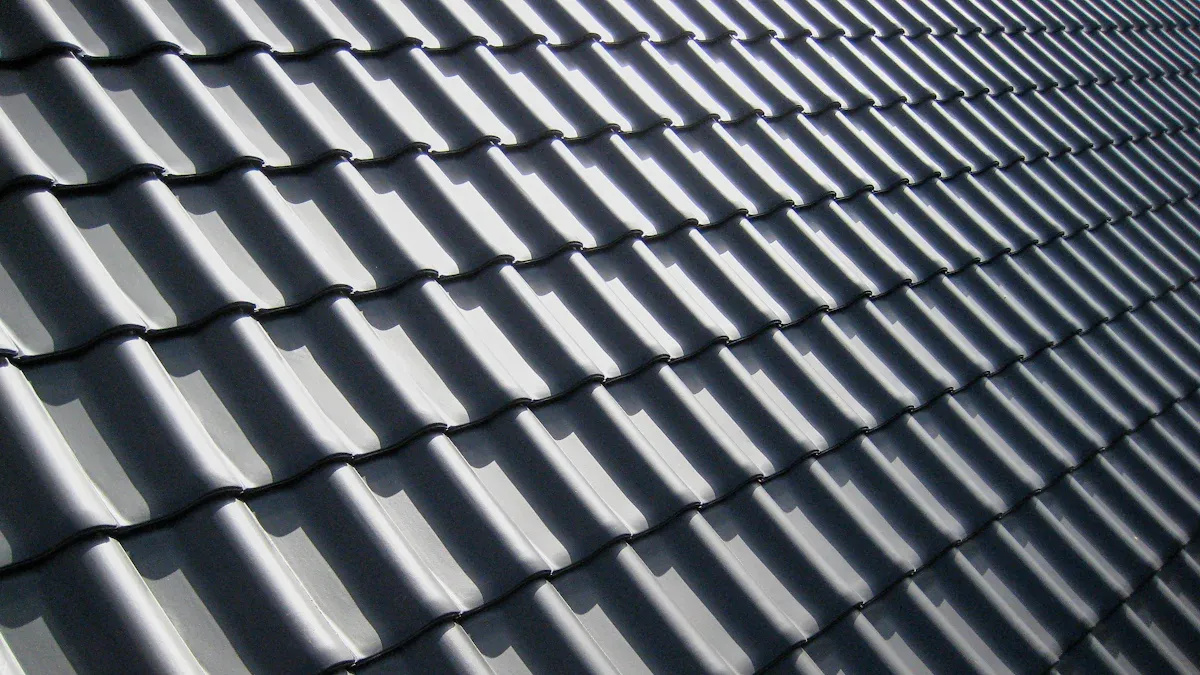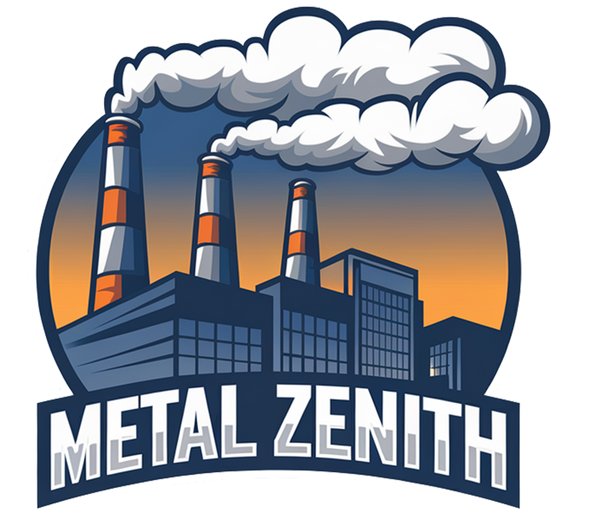
Comprehensive Guide to 12 Feet Roofing Sheet Prices
Share
Table Of Content
Table Of Content

Are you wondering about the 12 feet roofing sheet price? Costs can vary depending on the material. For example:
- Galvanized steel sheets range from $20 to $50 per sheet.
- Aluminum sheets cost between $30 and $60.
- Polycarbonate sheets fall between $25 and $70.
Knowing these 12 feet roofing sheet price ranges helps you plan your budget better. Roofing is a big investment, and understanding costs ensures you make smart choices without overspending. Whether you're building a new home or replacing an old roof, being informed saves you time and money.
Key Takeaways
- Learn the price ranges for materials: Steel sheets cost $20-$50, aluminum $30-$60, and polycarbonate $25-$70. Knowing this helps you plan your budget well.
- Think about the thickness of roofing sheets. Thicker sheets are stronger and last longer. They are better for places with tough weather.
- Look around for the best deals. Local stores might have cheaper prices than big shops. Comparing prices can save you money.
- Remember extra costs like underlayment and installation. These can add a lot to your total budget.
- Talk to roofing experts for advice. They can help you pick the right materials and avoid expensive mistakes.
Overview of 12 Feet Roofing Sheet Prices
Price Range by Material
The type of material affects roofing sheet prices. Each material has a price range based on its strength, weight, and quality. For example:
- Steel roofing sheets are the cheapest option. They usually cost $20 to $50 for a 12-foot sheet.
- Aluminum sheets are light and rust-proof but cost more. Their price ranges from $30 to $60.
- Polycarbonate sheets are strong and clear. These cost between $25 and $70.
If you want something special, copper sheets are available. However, they are expensive and often cost over $100 per sheet.
Price Range by Thickness
The thickness of a sheet changes its price. Thicker sheets are stronger and last longer but cost more. For example:
- Thin steel sheets (about 0.3mm) may cost $20. Thicker ones (0.5mm or more) can cost up to $50.
- Aluminum sheets also cost more when they are thicker.
Think about your needs before buying. If you live in a place with heavy rain or snow, thicker sheets might save money over time.
Price Range by Region or Supplier
Where you buy roofing sheets affects their price. Local sellers may have lower prices, while big stores might charge more. Prices also change by location. Cities often have higher prices due to demand, while rural areas may be cheaper.
Tip: Check prices from different sellers before buying. This helps you find the best deal for your 12 feet roofing sheet price.
Factors That Change the Price of 12 Feet Roofing Sheets
Type of Material
The material you pick affects the price a lot. Common choices include steel, aluminum, copper, and polycarbonate. Each has different costs and benefits. Steel is cheap and strong, so many people like it. Aluminum costs more but doesn’t rust, which is good for wet areas. Copper looks nice and lasts long but is the priciest. Polycarbonate is light and flexible, but its cost depends on the brand and quality.
Tip: Think about your weather and money before choosing. Researching can help you save cash later.
Thickness of the Sheet
Thicker sheets cost more but are stronger and last longer. If you live where it rains or snows a lot, thicker sheets are better. Thin steel sheets are cheaper but may not handle bad weather well. Thicker ones last longer and can lower repair costs.
When shopping, check how thick the sheets are. This helps you get the best value for your money.
Paint or Coating
The paint or coating on a sheet changes its price too. Sheets with better paint or coatings cost more but protect against rust, sun, and weather. For example, a coated steel sheet lasts longer than one without.
If you want to save money, pick sheets with basic coatings. They’re cheaper but still offer good protection.
Note: Spending on a good coating can reduce future repair costs.
Installation Complexity
How hard it is to install roofing sheets affects costs. Simple roofs, like flat ones, are easier and cheaper to install. But roofs with many slopes or tricky angles need more work. This makes the installation more expensive.
The type of roofing sheet also matters. Steel sheets are heavy and may need extra help or tools. Lighter materials, like aluminum or polycarbonate, are easier to install. These can lower labor costs.
Tip: Ask your supplier or contractor about installation needs. This helps you avoid surprise costs.
If you want to install the sheets yourself, be prepared. Use the right tools and safety gear. DIY might save money but can lead to mistakes if you're not skilled. Hiring experts ensures the job is safe and done well.
Market Demand and Supply
Demand and supply affect the price of 12 feet roofing sheets. During busy building seasons, prices often go up. In slower times, you might find cheaper options.
Shortages of materials like steel or aluminum can raise prices too. Where you live also matters. Fewer suppliers in an area can mean higher costs.
Pro Tip: Watch market trends and buy during low-demand times. This can help you save money.
Check prices from different sellers before buying. Some offer discounts for bulk orders or sales. Comparing prices can help you spend less.
Material Options for 12 Feet Roofing Sheets

Steel Roofing Sheets
Pros and Cons
Steel roofing sheets are a popular choice for many homeowners. They’re durable and can handle tough weather conditions like heavy rain or snow. Steel is also fire-resistant, which adds an extra layer of safety to your home. Plus, it’s one of the most affordable options out there.
However, steel sheets can rust over time if they’re not coated properly. They’re also heavier than other materials, which might make installation a bit more challenging. If you live in a coastal area, the salty air can speed up corrosion, so keep that in mind.
Price Range
Steel roofing sheets are budget-friendly. You can expect to pay between $20 and $50 per sheet, depending on the thickness and coating. This makes them a great option if you’re looking to save on your 12 feet roofing sheet price without sacrificing durability.
Aluminum Roofing Sheets
Pros and Cons
Aluminum sheets are lightweight and rust-proof, making them perfect for areas with high humidity or rainfall. They’re also easy to install and require less maintenance compared to steel. Aluminum reflects heat well, which can help keep your home cooler in hot climates.
On the downside, aluminum is more expensive than steel. It’s also softer, so it might dent more easily during hailstorms or if heavy objects fall on it.
Price Range
Aluminum roofing sheets typically cost between $30 and $60 per sheet. While they’re pricier than steel, their rust resistance and lightweight nature make them worth considering for long-term use.
Copper Roofing Sheets
Pros and Cons
Copper roofing sheets are the premium choice for those who want a stunning, long-lasting roof. They develop a beautiful patina over time, adding character to your home. Copper is also incredibly durable and can last for decades with minimal maintenance.
The biggest drawback is the cost. Copper is significantly more expensive than other materials. It’s also a softer metal, so it can dent or scratch more easily.
Price Range
Copper roofing sheets are a luxury option, with prices often exceeding $100 per sheet. If you’re aiming for a high-end look and don’t mind the investment, copper is an excellent choice.
Polycarbonate and Fiberglass Roofing Sheets
Pros and Cons
Polycarbonate and fiberglass sheets are light and flexible materials. They are often used for patios, greenhouses, and factories.
Here’s why they are great:
- Durability: Both materials are strong and resist damage well. Polycarbonate is almost unbreakable, making it good for places with hail or falling objects.
- Light Transmission: These sheets let sunlight through, brightening spaces and lowering electricity bills.
- Weather Resistance: Fiberglass handles bad weather well. Polycarbonate blocks UV rays and stays clear over time.
However, they have some downsides:
- Cost: Polycarbonate costs more than steel or aluminum sheets.
- Heat Retention: These sheets can make spaces hotter by trapping heat.
- Maintenance: Fiberglass may crack or weaken after long exposure to sunlight.
Tip: If you live in a sunny area, choose polycarbonate sheets with UV protection. This helps them last longer.
Price Range
Polycarbonate and fiberglass sheets have different prices based on thickness and quality.
- Polycarbonate Sheets: Prices range from $25 to $70 per sheet. Thinner sheets cost less, but thicker ones last longer.
- Fiberglass Sheets: These are cheaper, costing $20 to $50 per sheet. They are a good choice for balancing price and durability.
Note: Prices change depending on the seller and location. Compare options to find the best deal.
Additional Costs to Consider
When budgeting for your 12 feet roofing sheets, it’s easy to focus only on the sheet prices. But there are other costs you should keep in mind. Let’s break them down so you’re not caught off guard.
Underlayment
Underlayment is the layer that goes beneath your roofing sheets. It acts as a shield, protecting your home from leaks and moisture. Think of it as the unsung hero of your roof!
There are different types of underlayment, like felt paper and synthetic materials. Synthetic options cost more but last longer and offer better protection. On average, underlayment costs range from $0.50 to $1.50 per square foot.
Tip: Don’t skip the underlayment. It’s a small investment that can save you from costly water damage later.
Trim and Flashing
Trim and flashing are essential for sealing the edges and joints of your roof. They prevent water from seeping into vulnerable areas, like corners and chimneys. Without them, even the best roofing sheets won’t keep your home dry.
The cost of trim and flashing depends on the material and design. Basic steel flashing starts at $5 per piece, while premium options like copper can go up to $20 or more.
Pro Tip: Match the material of your trim and flashing to your roofing sheets for a seamless look and better durability.
Installation Labor
Labor costs can vary widely depending on your roof’s complexity and location. A simple, flat roof is quicker and cheaper to install. But if your roof has multiple slopes or tricky angles, expect to pay more.
On average, professional installation costs range from $3 to $7 per square foot. While DIY might seem tempting, hiring experts ensures the job is done safely and correctly.
Reminder: Always get multiple quotes from contractors to find the best deal for your budget.
Maintenance and Repairs
Roofing sheets, like any other part of your home, need regular maintenance to stay in good shape. Ignoring small issues can lead to bigger, more expensive problems down the road. Here’s what you need to know about keeping your 12 feet roofing sheets in top condition.
Routine Maintenance Tips
- Clean Your Roof Regularly: Dirt, leaves, and debris can pile up and cause damage over time. Use a soft brush or a low-pressure washer to clean your roof.
- Inspect for Damage: Check for cracks, rust, or loose screws at least twice a year. Pay extra attention after storms or heavy winds.
- Trim Overhanging Branches: Trees near your roof can scratch the surface or drop branches during bad weather. Keeping them trimmed reduces the risk of damage.
- Check Gutters and Drainage: Clogged gutters can cause water to back up onto your roof, leading to leaks. Make sure they’re clear and working properly.
Pro Tip: Schedule a professional inspection every few years. Experts can spot issues you might miss.
Common Repairs and Costs
Even with regular care, repairs might be necessary. Here are some common issues and what they might cost:
- Replacing Damaged Sheets: If a sheet gets cracked or rusted, you’ll need to replace it. Costs range from $20 to $100 per sheet, depending on the material.
- Fixing Leaks: Small leaks can often be patched with sealant, which costs around $10 to $20. Larger leaks might require professional help.
- Repainting or Recoating: Over time, the paint or coating on your sheets may wear off. Repainting can cost $1 to $3 per square foot.
Reminder: Address repairs quickly to prevent further damage. A small fix now can save you from a costly replacement later.
Taking care of your roofing sheets doesn’t have to be overwhelming. With a little effort and attention, you can extend their lifespan and keep your home protected.
Tips for Picking the Best Roofing Sheet
Setting Your Budget
Your budget is key when choosing a roofing sheet. First, decide how much you can afford. Don’t forget extra costs like installation and upkeep. For example, steel sheets are cheaper but may need more care later.
If money is tight, compare prices from different sellers. Look for sales or bulk discounts. Spending more on quality now can save money later. A strong roof means fewer repairs over time.
Thinking About Strength and Lifespan
Roofs last a long time, so pick a strong material. Check your local weather. Do you get heavy rain, snow, or strong winds? If so, choose steel or aluminum for tough conditions. Polycarbonate is good if you need something light but sturdy.
How long the roof lasts also matters. Copper roofs can last decades with little care. Other materials might need more maintenance. A durable roof now can save repair costs later.
Choosing a Style You Like
Your roof isn’t just for protection—it adds to your home’s look. Think about the style you want. Do you like modern designs or a classic feel? Copper gives a timeless look, while polycarbonate feels sleek and modern.
Also, pick a color and finish that match your home. Roofing sheets come in many shades and coatings. A well-chosen roof makes your house look better and stand out.
Checking Weather and Environmental Conditions
The weather where you live affects your roofing choice. In rainy places, pick materials that resist rust and water. Aluminum and polycarbonate are good for wet areas. Coated steel sheets can also handle moisture well.
If you get heavy snow, choose strong and thick sheets. Steel or aluminum can hold snow better than thin sheets. For hot, sunny areas, pick sheets that reflect heat. Aluminum keeps homes cooler, and polycarbonate with UV protection reduces heat buildup.
Environment matters too. Near the coast, salty air causes rust. Aluminum is rust-proof and works well there. In windy places, heavier materials like steel are less likely to blow away.
Tip: Check the manufacturer’s advice for your area. They often suggest the best materials for your weather.
Asking for Expert Help
Choosing roofing sheets can be tricky, but experts can help. Roofing professionals know about materials and can guide you to the best choice. They help avoid mistakes and save money.
Ask them questions about materials for your weather and budget. Learn about installation and upkeep costs. Experts can also calculate the total price, including extras like underlayment.
Pro Tip: Get at least three quotes from contractors. Comparing prices helps you find the best deal.
If unsure about a material, ask for samples. Seeing and touching sheets helps you decide. Experts can also check your roof and suggest styles that fit your home.
Working with professionals saves time and worry. You’ll feel better knowing your roof is in expert hands.
Understanding the price of 12 feet roofing sheets is essential for making smart decisions. You’ve learned how material, thickness, and region impact costs. Balancing your budget with durability and style ensures you get the best value.
Remember: A strong roof isn’t just about saving money upfront. It’s about long-term protection and peace of mind.
Take your time, compare options, and consult professionals if needed. With the right approach, you’ll find a roofing sheet that fits your needs perfectly. 😊
FAQ
What is the average lifespan of a 12 feet roofing sheet?
The lifespan depends on the material. Steel sheets last 20-30 years, while aluminum can go up to 50 years. Copper sheets may last over 70 years. Proper maintenance extends their life.
Can I install 12 feet roofing sheets myself?
Yes, but it depends on your skills. Lightweight materials like aluminum or polycarbonate are easier for DIY. For heavier sheets like steel, hiring professionals ensures safety and proper installation.
Tip: Always use safety gear if you decide to install roofing sheets yourself.
How do I choose the right thickness for my roofing sheet?
Consider your local weather. Thicker sheets handle heavy rain, snow, or strong winds better. For mild climates, thinner sheets work fine and save money.
Are coated roofing sheets worth the extra cost?
Absolutely! Coated sheets resist rust, UV rays, and weather damage. They last longer and reduce maintenance costs. Spending a bit more upfront saves you money in the long run.
Where can I find the best deals on roofing sheets?
Check local suppliers, online stores, and hardware shops. Compare prices and ask about bulk discounts. Shopping during off-peak seasons often gets you better deals.
Pro Tip: Always read reviews and ask for warranties before purchasing.
